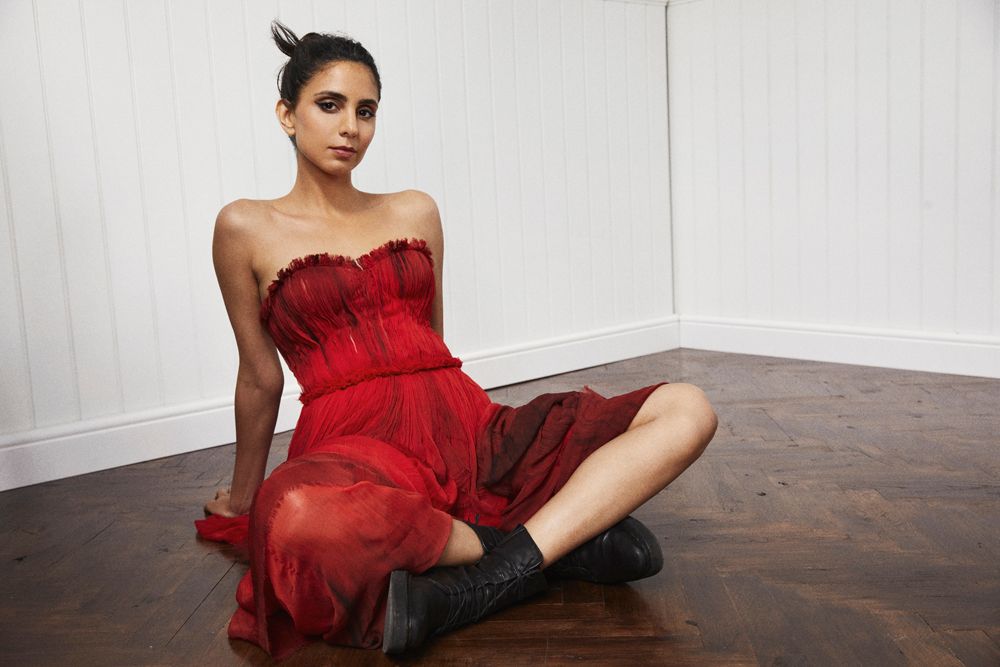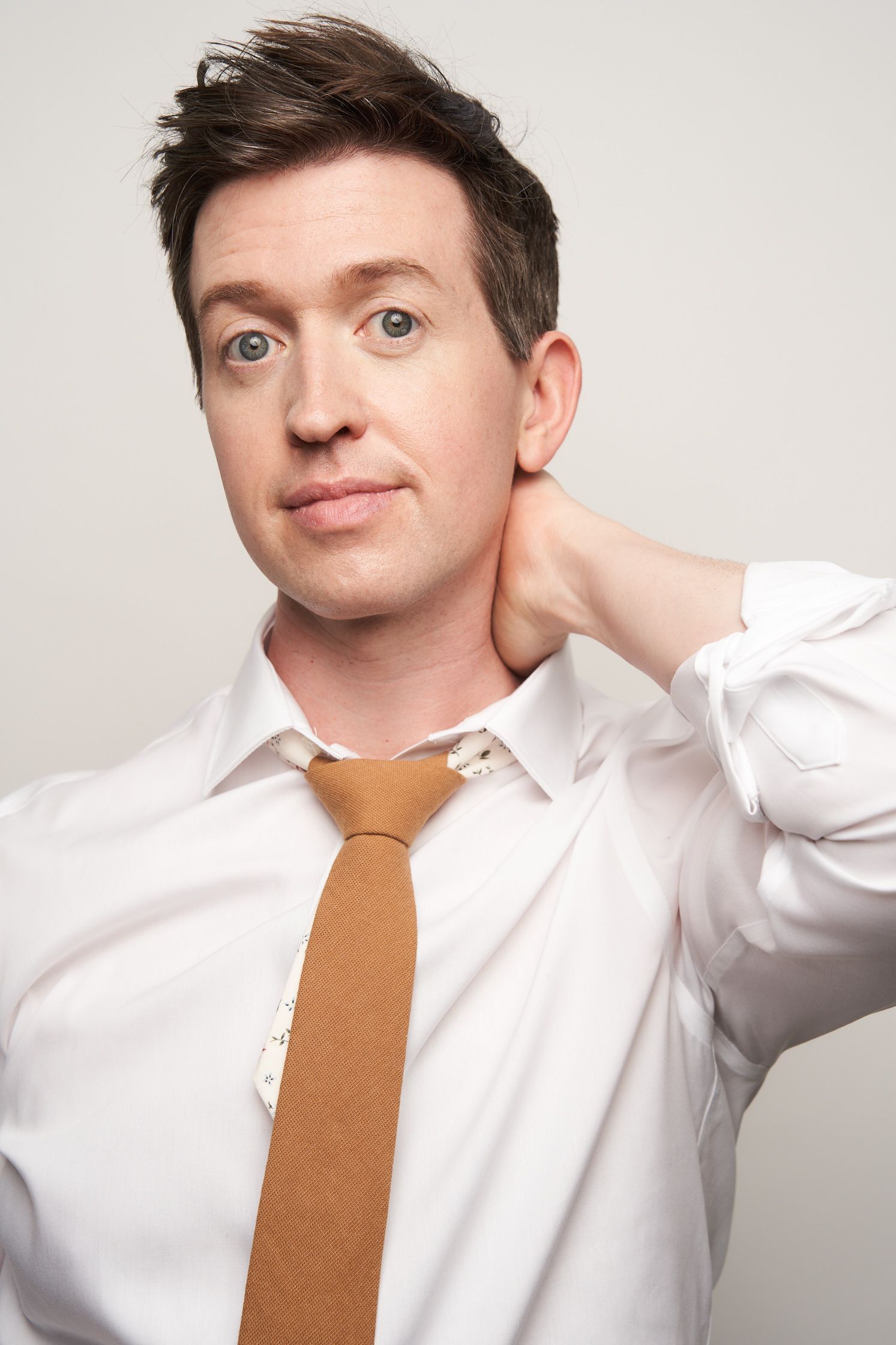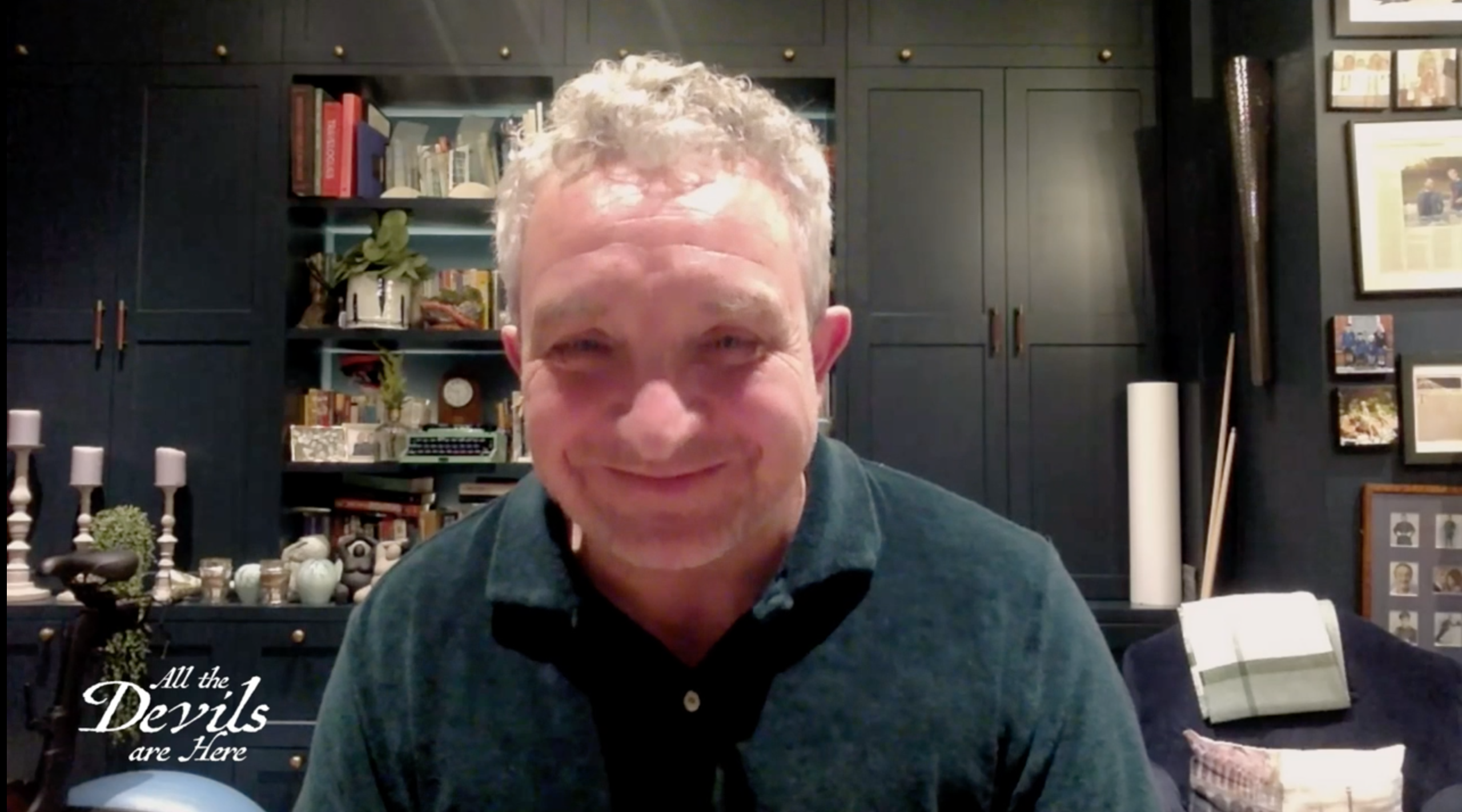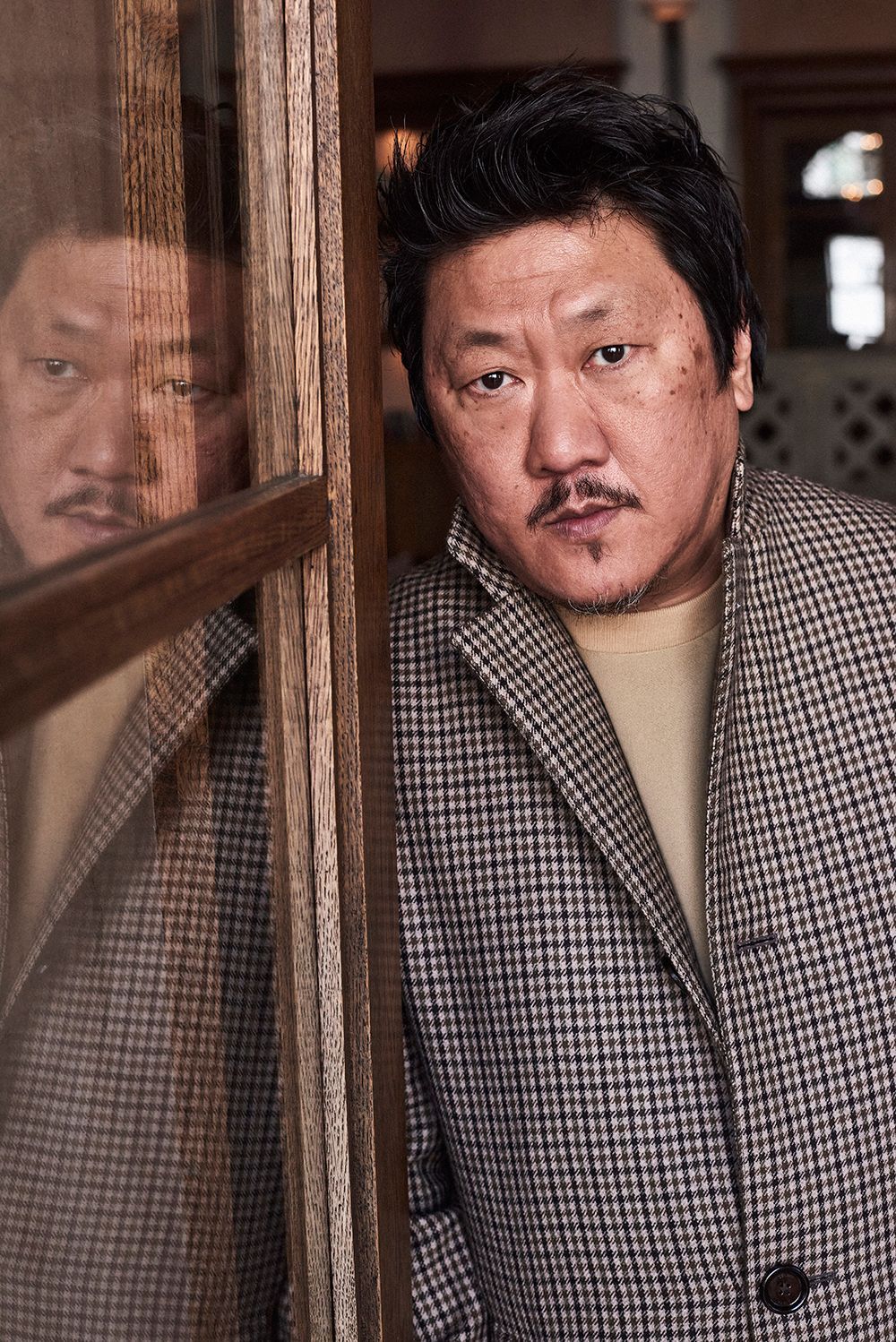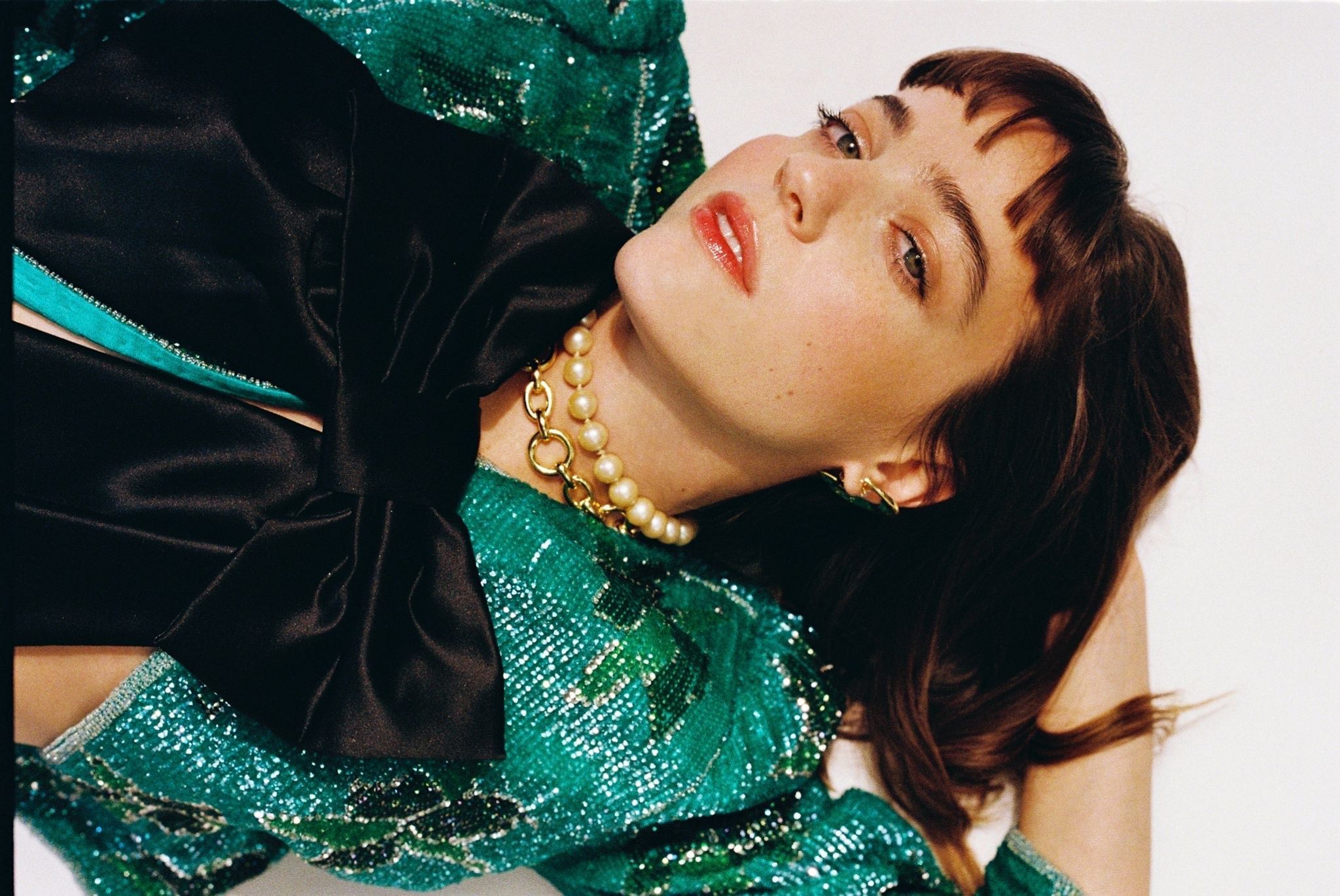Anjli Mohindra is taking on another electrifying role as she graces the screen in Sky Max’s The Lazarus Project, a science-fiction-based drama from screenwriter Joe Barton.
From Rani Chandra in The Sarah Jane Adventures to Tiffany Docherty in Vigil and Archie in The Lazarus Project, Anjli Mohindra has crafted a resume that’s filled to the brim with authenticity. She’s acted in an array of genres and has encompassed numerous dynamic roles. As she discussed the filming process for Vigil and how she got into character for The Lazarus Project, there was a real sense of pride and passion in her tone. What had already been evident to me through her performances—that she was an actor who cared deeply about her craft—was further amplified by our conversation.
Her latest role as Archie in Sky Max’s The Lazarus Project, premiering on June 16, further exemplifies why Mohindra is such an intriguing artist to watch. The way she carries herself on screen is unique—you can almost see, if you look closely enough, how she’s stepped completely into the skin of her character, leaving her skin behind temporarily. As a South Asian British actress, it’s important for Mohindra to play characters who feel like whole people. She doesn’t want to inhabit a role that effectively ticks a box—she wants to be able to breathe life into women who deserve to be their full selves on-screen.
This desire carries over into Mohindra’s writing projects and the way she researches her characters as well. During our conversation, she highlights two South Asian women who deserve spotlights of their own: Sophia Duleep Singh and Noor Inayat Khan. Mohindra speaks of both women lovingly, and, coupled with her performances, provides an inspirational representation for the South Asian community as a whole.
In conversation with 1883 Magazine, Anjli Mohindra discusses her roles in Vigil and The Lazarus Project, how she prepared for Munich: The Edge of War, what it was like to film two projects in Cardiff 10 years apart, and much more.
Speaking of Shaun Evans—I wanted to talk to you about Vigil because it was such an incredible show. Your character, Tiffany Docherty, was really interesting to me because she seems very straight-laced, but then you get into the grittiness of her story more. When you were reading the script, was there a particular scene that made you feel like you wanted to do this and had to take this role?
I fell in love with the character from the first reading. I think she’s so brilliantly complicated. And yes, I guess casting an Indian actor playing a doctor seems a little pedestrian or a little boring or on the nose, but I think what was brilliant is that they didn’t specify a race for any of their characters [for Vigil]. They were open to anyone. I know a lot of people had auditioned for the series and there was a real buzz about being involved. I hadn’t ever read someone who’s meant to be an upstanding citizen in the way that a doctor is, but yet, in more ways than one, is very complicated. And she acts in ways she absolutely shouldn’t, she takes risks with her job and risks her moral compass a little bit. But, I like that about her. I liked that she helps her colleagues cheat on their drug tests and is having an affair with someone on the ship, you know? In a way, that could completely jeopardize her whole career.
You made the character feel like a real person because a real person would do those things in those situations. Especially where, as you said, she’s so involved in the team aspect of it and she would be compelled to cover for them because she’s thinking that it isn’t their fault that these other things happened. I liked that Tiffany was a whole person and that she wasn’t one-dimensional.
Yeah, me too. It just makes, as you said, people feel real—like people you’d encounter. And everyone’s a bit complicated and everyone has things about themselves they don’t necessarily love or things about themselves they’re not particularly proud of. But I thought she had that in spades for someone who doesn’t get that much air time. There was just so much about her.
It was always very compelling whenever you were on screen, because, as a viewer, you’re not sure what’s going to happen next. There was never a moment where you had Tiffany figured out, or where you knew what she was doing, which I loved. I think that’s one of the great aspects of thrillers in general.
I completely agree. I think what I learned early on, going into this as one of my first suspense/thriller jobs, is that you’re supposed to think everyone is behind it. It’s quite fun to twirl your mustache a little bit, even if you know you’ve got nothing to do with it. [Both laugh].
That must be fun when you know what’s going on, but the audience doesn’t. Do you have to separate yourself from what’s going to happen later to focus on what’s happening in the scene?
I do, yeah! That’s exactly it.
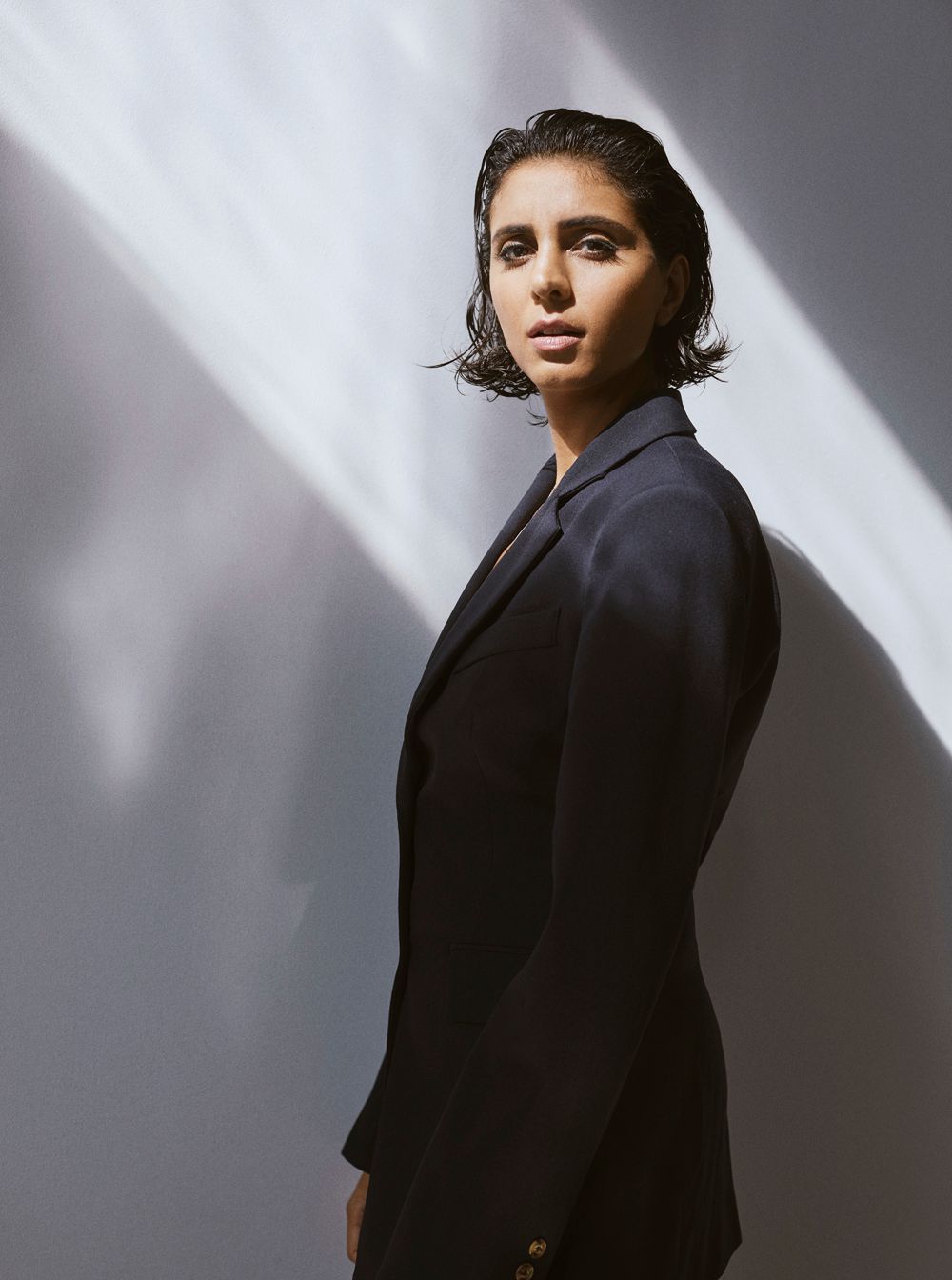
I also loved the way that it was filmed because it felt very claustrophobic. Did the directors have a way of getting everyone into that cramped mindset? How did you prepare yourself for that?
Straight after the read-through, we met an ex-submariner called Feargal [Dalton] who had worked in the Navy and had been aboard many submarines in his time. He had so many pearls of wisdom in terms of the way people conduct themselves on board a submarine. He said you often don’t feel the weight of the depth you’re moving at, and that people don’t typically shout either—he said everyone talks at a respectful audible level because otherwise, you could betray the position of the submarine. Sonar systems are being used to try and figure out where the submarines are, and I think you can use sound waves to find them since things are so dark down there. And so, other submarines could detect you if you’re being too loud.
All of that helped. And also the sense of responsibility—I suppose, in some sense, you could be on a suicide mission. If you have to launch your missiles, it would completely break apart your submarine and you would die as a result of that. That comes with the territory. And I think the claustrophobia, we didn’t have to discuss it too much as you went on set because everything was so cramped in one sense, but sprawling in another because it’s such a long area. You could do a scene where you went from one end to the other without having to stop. But the spaces themselves, like the offices and the dormitories, were compact. And we were told they were more spacious than in reality because they had to leave a bit of extra room for the cameras. But we were like, “Jesus, this is tight.”
I can’t even imagine that. I didn’t realize that if you launched the missiles, you would be like, “Well, that’s it for us then.” I can’t imagine working and living under that kind of stress and pressure. It must make everything heightened in terms of your decisions and your relationships because you’re thinking, “These people are all I have.”
Yes. Exactly. That’s exactly how it is.
I’m sure it was an interesting project to film as well, not only being in the cramped quarters but bearing those emotions in mind as well while you’re acting. Because you’re very much in it, and in so many different ways.
It was brilliant because we were filming away from London, which is where a lot of actors work, and I think, on this particular job, there was a large contingent of the cast that were living in Scotland. But when you’re filming away from home, there’s a real camaraderie that comes with that when everyone is staying in the same hotel, and we had such high aspirations for hanging out and the places we’d go and the Airbnbs we’d stay in … in these remote Scottish areas. But I think we only filmed for about four weeks before the pandemic hit the U.K. and our opportunity to hang out with each other diminished. But then, obviously, being locked down helped in a way too. Because we’d all spent so long in our homes, I think everyone had a sense of claustrophobia by the time we went back to finish filming.
I didn’t realize it happened right in the middle and that you weren’t able to shoot it straight through beforehand. That must have been so weird to go back after that?
It was. Restrictions were pretty tight still, and a lot of my friends hadn’t gone back to work and were still working from home, and then suddenly, I’m on a plane going to Scotland and I’m doing all these things that feel millions of miles away from any of the lives we had been living at the time. So, it was weird coming back to that. I mean, people go on long tours of shows, don’t they? Or they play a role through multiple series, but I think finishing scenes, or finishing directing edits of a storyline having filmed something almost six months before and then going back, I think we all felt different. The pandemic has changed us in so many ways, you know? And the things that may have seemed important at one point don’t seem as important anymore, and vice versa. So, I think we all felt a little different coming back to film. We were also grateful to be there, but I think a lot of the cast can watch the final product and see the differences and remember what was filmed before and what was filmed after.
That’s so strange to think about. As a viewer, we’re not picking up on any of that. So, it’s interesting to see how it all came out so cohesively, but that must be hard for you as an actor, right? Because you’d have to go back to a scene where you’re in a heightened state of emotion and drop back into character immediately, even though you’d been away from that moment for several months.
And thinking back to six months ago when we had everything set up originally. It can be a little tough. Or worse, which is a nightmare, is when you’re like, “Oh, why did I do the scene like that? Now that I’ve had six months to think about it, why did I do that? Can we all just have another go?”
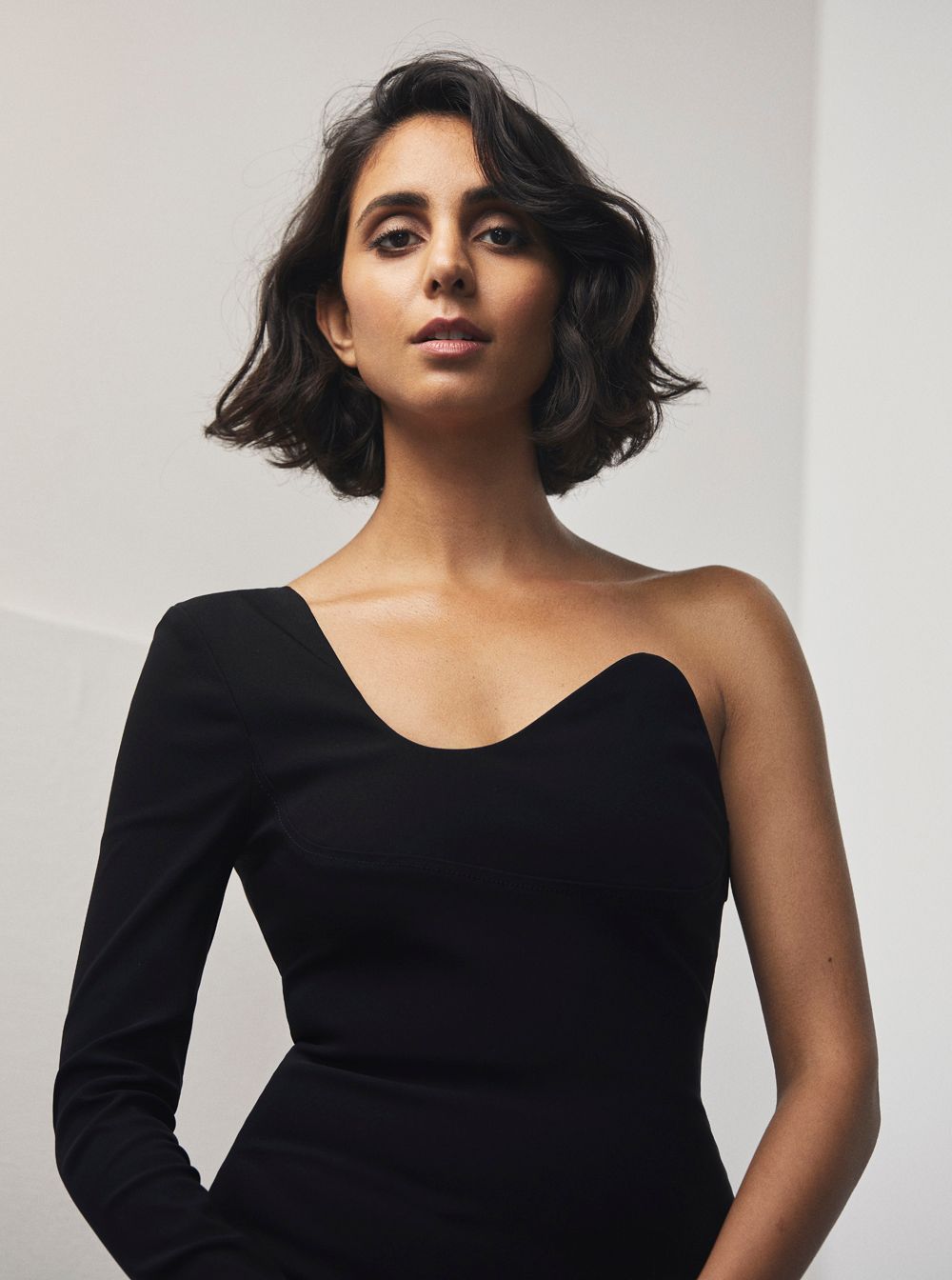
I wanted to talk to you a little bit about Munich: The Edge of War as well, which is another intense project but in a completely different way. I read an interview you did with Digital Spy where you discussed how you drew inspiration from a real-life British South Asian spy for your role in the film, which I thought was incredible. Can you tell me more about her story, and what it means to you to encompass this role where you’re leading the charge on representation in this way?
I think, often, when you get sent an audition, especially for period dramas, you kind of think, “Is this a box-ticking exercise? Am I just being asked to audition for this and maybe my tape won’t ever get seen?” There’s always a bit of a bittersweet feeling involved, but I thought Joan jumped off the page, even in that first scene where she says, “If you want to know where I’m from, the answer’s Nottingham.” I felt like it says it all in terms of the struggle of a non-Caucasian person living in Britain who now gets asked, all the time, “Where are you really from?” So, I loved it. I was already a big fan of Ben Power’s work, and I knew this part was something I wanted.
So, it was a real dream to get and I loved filming it. And as you said, I’ve always liked researching and trying to build a backstory around my characters. Noor Inayat Khan, the British South Asian spy I had based my research on, was very much around and working in World War II. She was a great person to draw from, as you said, for so many reasons. Joan is British, but her family has come from India, which is a country that was colonized by Britain. But there’s also, I think, a beautiful thing about having a patriotic affection for your country and wanting to do right by the country you live in.
I feel like it’s almost more compelling that she would be drawn to something like that when you consider the way she’s treated in England. For her to say, “I’m putting all this prejudice aside and I’m doing what I want to do for the country I’m living in,” is so powerful. It could be almost one-note, where they weren’t allowing the character to breathe truth into the situation, but it wasn’t like that. I love that she was cool and strong and did what she wanted to do, although she was being treated unfairly.
It’s that exactly. It doesn’t get in the way—she hasn’t got a chip on her shoulder. She wants to fight for her country.
I think, honestly, it would have been warranted if she did have a chip on her shoulder. It would be very, very understandable. It’s very compelling to see her say, “I’m going to do what I want to do and make myself proud.” It didn’t matter about the outside influences surrounding that decision.
Yeah, exactly. And I think there’s space to have her frustrations about what happened to her home country and to also want to do what she does. I think that’s what’s so brilliant about her.
To have your family be from a place that was colonized, which is problematic in and of itself, and to then grapple with that and reconcile that with the pride you have in being where you’re from … must be tough. That must be so tough.
Yeah, I think so. I think so.
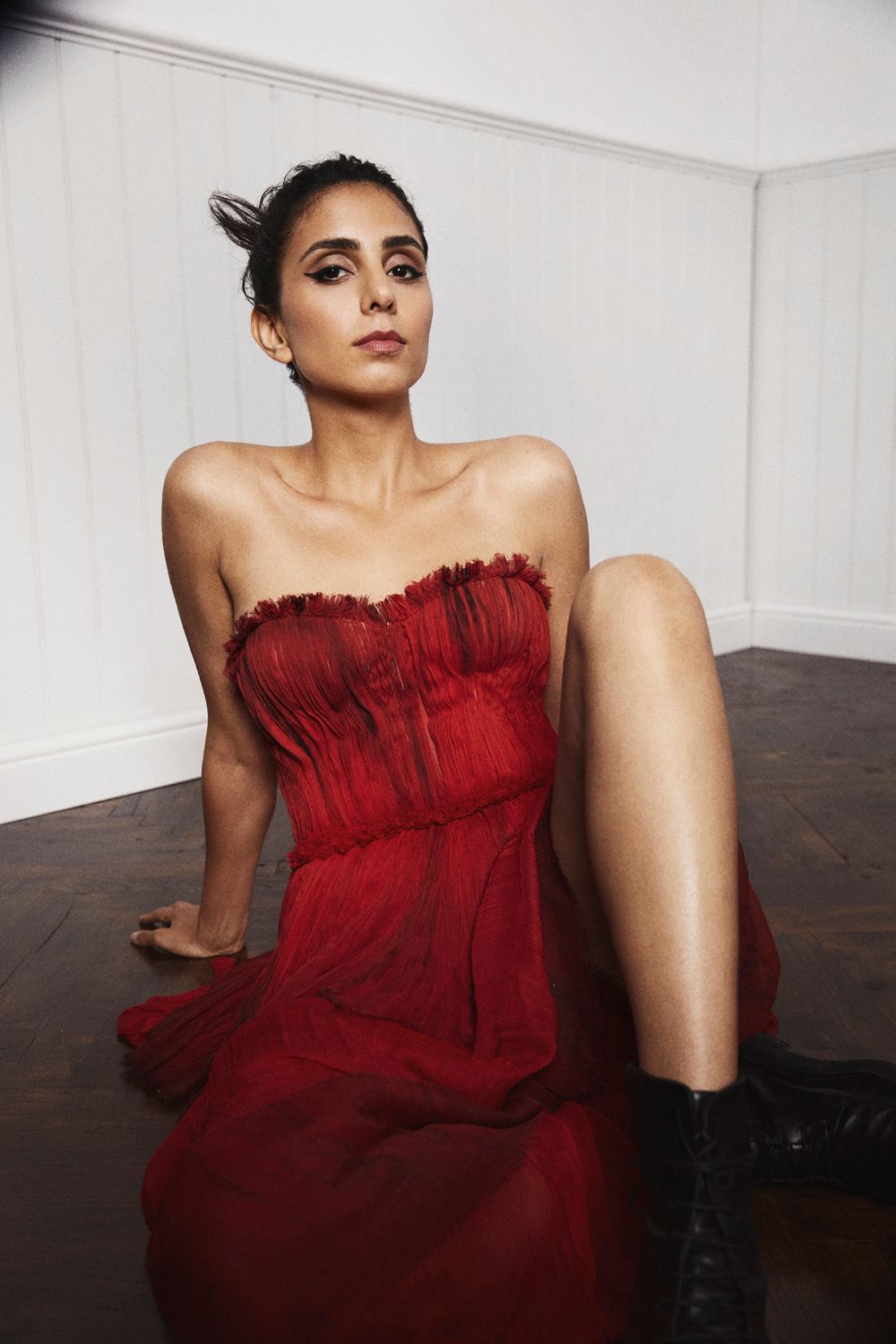
This reminds me of the essay you wrote for Stylist a few years ago when everything was happening with The Bodyguard in terms of representation and how the show brought up a difficult and sensitive situation. I wanted to speak with you about the essay because I thought it was so beautifully written and beautifully expressed, and you were vulnerable in that piece. Was that scary for you, or refreshing for you, when people were reading it? Or were you content to share your authentic self and then be able to take a step back and say, “I don’t care how this is received” once it was published?
I think the latter. I was going through a massive period of wanting to be honest about my experience and I’d been inspired by some of my peers who have come out and talked about identity and their struggles with inherited race. I was at a time in my life where I was starting to become comfortable in my skin and trying to atone, in some ways, for the times when I hadn’t been so comfortable in my skin and may have acted in certain ways, particularly with my family. I think it was almost a love letter to my parents for watching me go through a period of embarrassment and shame to come from somewhere that isn’t white, British, England. And then having to come out on the other side and want to make peace with that and talk about it, just in case other people were feeling a similar way. I feel like the piece struck a chord with some people, and I’ve received some nice feedback on it about people feeling seen, and that it was a shared feeling a lot of people go through.
I’m sure so many people in similar situations read that and said, “If she feels that, it’s okay for me to feel that.” I think sometimes you need that outside influence to be pushed into that a little bit.
I think that’s true. There’s a brilliant movement in that way. I feel, for years, South Asian artists were pitted against each other and made to believe there wasn’t enough room for all of us, and made to feel there wasn’t enough room for us all to thrive. But there’s been a real shift in opportunities, and also in the psyche of the South Asian community. I think people want to celebrate each other and be honest about their experiences. We’ve started championing ourselves in the way you’ve seen Black artists building each other up and putting the spotlight on each other’s work and talking about their experiences. It’s an exciting time.
You’re set to star in The Lazarus Project on Sky Max. It seems like such a unique premise, and I’m intrigued by the science-fiction aspect of the series. I know you’ve done roles in this realm before, but what was particularly appealing to you about your role in The Lazarus Project? Well, I suppose I should be asking what you can even tell me about your role in the show. [Both laugh].
I had been a massive fan of Joe Barton because of the show he wrote called Giri/Haji that was out a few years ago. I just loved it. I binge-watched it and raved about it. And then the audition for The Lazarus Project came through and I was excited, immediately, to read it. I read the script they sent me in one sitting, and I thought the character, Archie, was one of the most refreshing characters I had ever read. I wanted her to be my best friend. I thought she was so funny and dry and strong and brilliant. And also, the theme of the show is incredible. It’s tongue-in-cheek, very British, very dry humour. And it’s a thriller. A sci-fi thriller!
Those are great independently, but when you bring them together, it’s so immersive. I love that. So good!
So good! It feels a bit like Minority Report meets Eternal Sunshine of the Spotless Mind.
Two incredible movies! Two of my favourite movies.
Amazing! So, it’s like those but with the driest British humour. It was so much fun, and it’s such a great premise that asks really important questions about altruism and what happens if we take charge of our lives in a very uncertain, fun way. And if we take control of our situation, what gives someone the right to do that? Who is the right person to spearhead the decision-making in our need to save the planet, or to save human existence?
That sounds amazing. I had watched the trailer for it when it came out and I’ve been trying to keep track of the show since then because it seems like there are so many layers to the story being told. I love that it’s not going to be just one thing—it’s great that there are humorous elements, and that it’s a thriller as well. That makes for an interesting project!
Yeah! It’s so good.
What do you think was most rewarding about your time filming The Lazarus Project?
I had the most amazing time. For starters, I was obsessed with the writing, and I got to do some stunt work and some weapons handling, some fight stuff, and all of that was so much fun to play. But I filmed in Cardiff on this … and on my first ever regular role, which was for a Doctor Who spinoff series, I filmed in Cardiff then, as well. So, to revisit Cardiff 10 years later as a slightly older actor was an absolute treat. There’s something about the crew on a Welsh set—they’re funny and lovely and kind and patient. There was a wonderful family vibe on set and we all loved each other so much. We’d all go out, as soon as the pub restrictions were lifted, and we’d go down to the local pub and drink together and sit across all these separate tables, and there was a real sense of team spirit on that job. Honestly, it’s the best job I’ve ever done. I loved it.
That’s incredible! The spinoff project also occurred in the same type of science-fiction realm, so it’s funny that you were able to go back to the same place where you filmed a similar project and see how you’ve grown as an actor and as a person between then and now. That must be an interesting mirror to your journey?
Totally. It’s a yardstick by which you can measure your growth and your changes. It’s as you said, it’s a mirror.
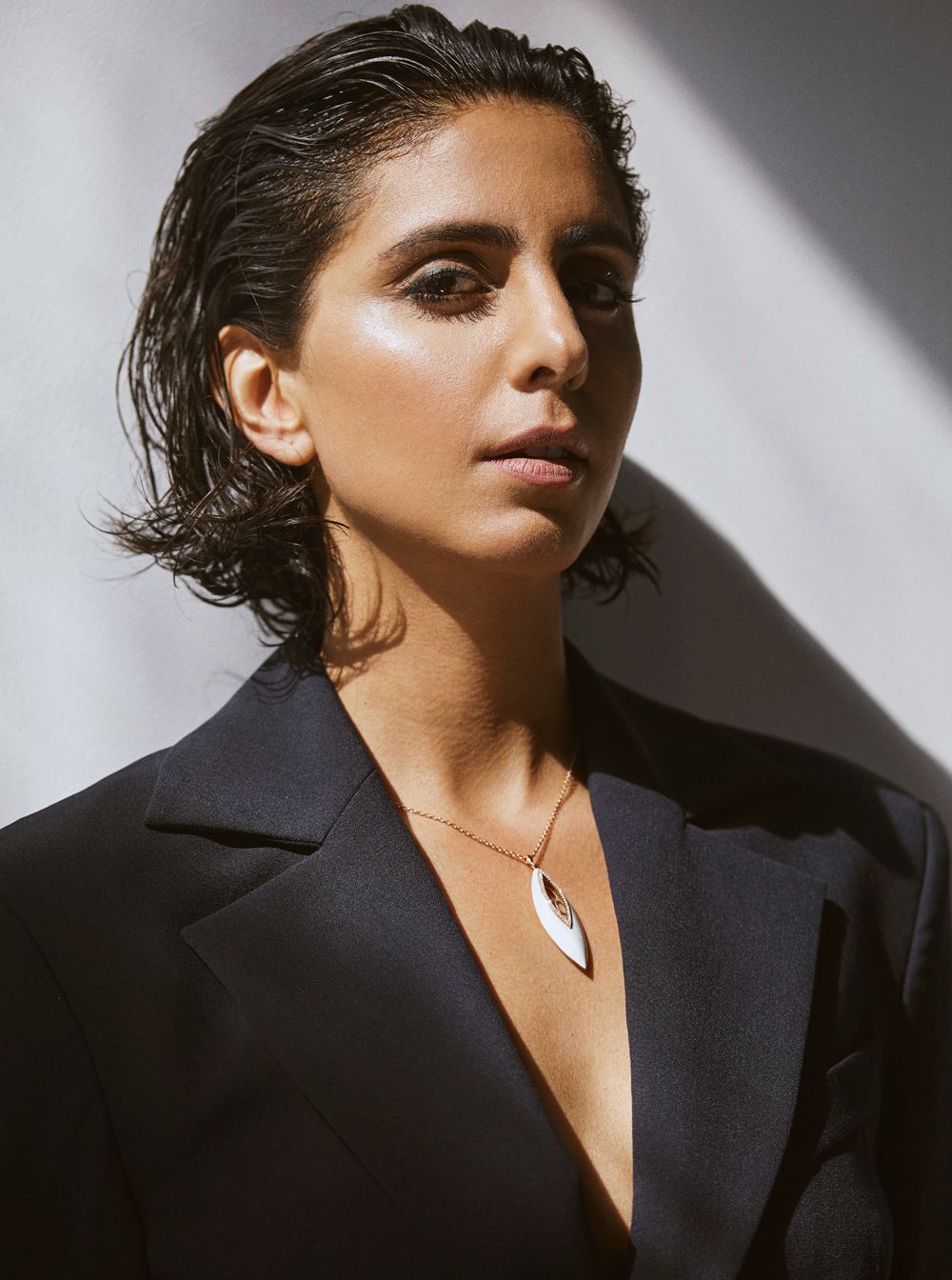
What’s most appealing to you about working in the science fiction genre as an actor?
Science-fiction allows us to ask questions about humanity, and in our case with The Lazarus Project, more specifically about morality, on an epic scale. I also enjoy when sci-fi creates interplay with life beyond Earth as it poses interesting questions about race, identity, and responsibility between humans. It allows writers to create ‘Trojan horses’ with issues they’d like to tackle! We think we’re watching the epic journey of an alien encounter but we’re sometimes also studying themes of prejudice and integration.
As you’re gearing up for the show’s release, what are you most looking forward to in terms of fan reaction and response? Or is that something you don’t typically pay attention to when one of your projects is released?
I try not to pay attention but it of course matters that people get it and enjoy it. And that they get the same thrill I experienced when I first read the episodes. I think I’m always keen to see how that carries.
I know you touched on it a little in terms of your process for getting into character, but I wanted to discuss that more regarding your role in The Lazarus Project. With something like Munich, you can do historical research to help build your character. But how do you tap into your role and find your backstory for something like this where it’s a unique premise?
I start with the script and read it as many times as I can and try to get as many clues about the character as I can, and then I work out from there who they are and why they do things. As I’m getting older, I’m starting to realize it’s the flaws in a character that makes them relatable and human. So, I try to find the things they might not know about themselves or the things they might not want people to know. I think there’s a Meryl Streep interview where she said that with her characters, she always imbues them with a secret nobody else knows, something they just keep to themselves. I think that’s useful, and it’s always great to have something you keep private about yourself.
It might be that your character is suffering from heartbreak or has lost a loved one, or is maybe expecting a child but doesn’t want people to know. Or maybe they’ve killed someone once — it could be anything that’s not in the script but makes sense to the character, and you use that as something to play off, which I think is a really beautiful thing. With Archie in The Lazarus Project, she’s so fiercely intelligent and she’s so witty. There’s something about her that felt quite working class or lower middle class, and you could sense she’d fought for the position of where she was. She’s very, very smart, but I think because she was Oxbridge trained … I felt she had that extra layer of someone who had fought her way into Oxford University, she wasn’t someone who had gone to private school and this was a path she was easily going to go on. I felt like her journey gave off that sort of struggle. And I could relate to that. So, it’s just stealing clues from the script and then having wild fun with your imagination and going off in all directions. I love that bit so much.
Incredible! I’ve spoken to some people who use playlists to help get into the mind of their character, but that must be so much fun to let your imagination run wild to see how it will work. And I love how, in terms of what you were saying about how your character is intelligent, that she’s smart but she’s working hard for it. Because there are different types of intelligence than the one where you’re on a path and everything is handed to you and you don’t have to fight for it as much. I think that’s such a great quality to see on-screen because then your character feels more tangible.
Exactly. And if you can feel a character struggling for something, it makes you care. We care about the climate of people. We care about the underdog winning, we care about the football team who has fought the hardest for something. I think, as humans, we have an affinity toward it.
You feel more invested in what’s going to happen. When you feel detached from the characters, you aren’t as likely to tune into the show, or you may be more comfortable missing an episode. But when you’re invested in the characters, you’re going to keep watching because you want to know what happens. That must be gratifying for you as well when you’re filming it and watching it back? I’m in the U.S. so it’ll probably be a little bit before I get to see it!
I can’t wait! And hope you get to see it soon. I’m not sure what platform it’s going to be on, but I look forward to hearing what you think when you watch it.
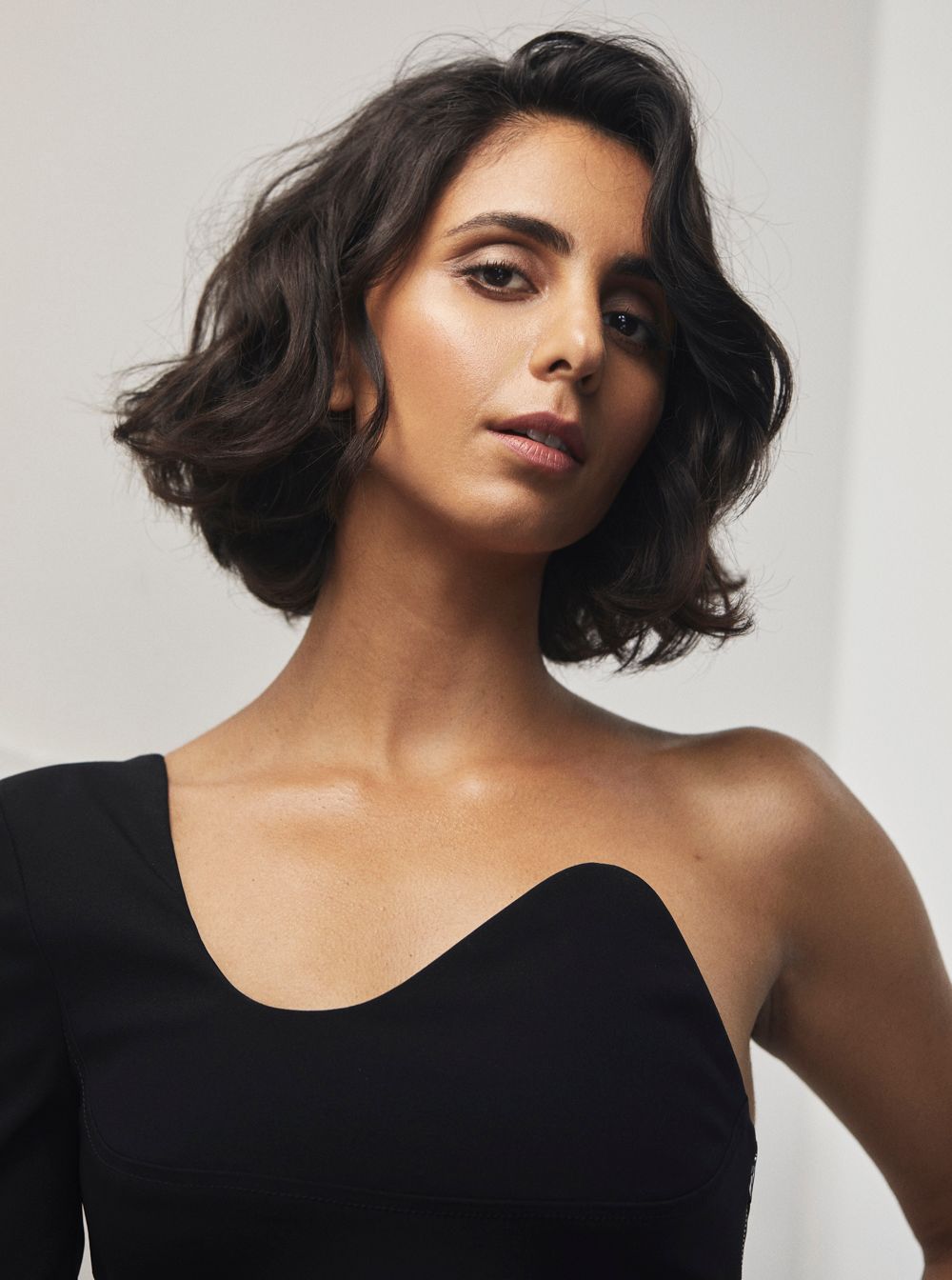
I always like to do one fun question at the end of interviews, so. If you could play any historic or iconic South Asian woman in a movie, who would you choose and why?
This is a difficult question because I’m in development as a writer on a project about a Suffragette, who was also an Indian princess. She was the daughter of the last, sort of prominent, royal family in India. Her name was Sophia Duleep Singh. And when I first heard about her, I was like, “I have got to play this woman. She is incredible.” But now that I’m developing her as a writer, I feel like I have such respect and love for her that I don’t want to ruin it by playing her. I have a massive internal debate going on at the moment, which is very much undecided. But, at least if I don’t play her, I spearheaded her series being written, so that will do for now! I feel like I have this incredible thing in my hands right now, and I’m really, really rooting for it to be picked up by a channel and for it to be out there for the world to see, because she is one hell of a woman.
That sounds incredible! I didn’t realize you wrote as well. Wow, that’s amazing.
Yeah!
Is that something you’ve always done? Or is it something you got into a little bit more recently?
I have written for quite a while, but more for myself. I took part in the Royal Court Writers’ Programme, which is quite a prestigious writing program in London, about six years ago. Acting has always taken the lead, but the pandemic allowed me to write more. I mean, the pandemic definitely spawned a lot of pandemic writers, but it is something that I’d been actively doing for some time before, and then the pandemic gave me the space to explore that properly.
What an amazing story to kick that off with and to be able to tell. I think you would do it justice as an actor!
Oh, thank you!
I feel like writing it gives you an added edge because you’ve lived in her story for such a long time and in such intimate detail.
Now and then, I lean toward it. I think, once I’ve written it, I’ll see if I feel like a natural fit for it and for who she is in this televised exploration of her to see if it feels organic.
I’m going to Google her as soon as we’re done talking and look into her story more because I’m so interested.
Oh my God, she’s incredible. I recommend her book. It’s called Sophia: Princess, Suffragette, Revolutionary written by Anita Anand. She is just incredible. I’d love to know what you think.
I’m writing that down right now! I love to read. It’s all I do in my free time, and I’m trying to expand my horizons and try different subjects and different authors. This is great. Thank you for sharing this with me.
You’ll have to let me know what you think!
Absolutely. I will be sure to do that. And I appreciate the suggestion. I would love to talk about it afterward! I’m always happy to talk about books.
Yeah, man, me too! Me too. I’m so close to joining a book club because I just really love that. [Both laugh]. But I read at a very weird pace because I always have scripts that come in and get in the way. Like, it’s taken me almost three years to read Girl, Woman, Other by Bernardine Evaristo.
I’ve heard that book is incredible, but I haven’t dived into it yet. I’m the same way as you, though. Reading for me has always been feast or famine. I’ll either read a book in two days or it’ll take me two months. There’s no in-between for some reason.
It’s just hard, isn’t it? Sometimes life gets in the way and it’s hard to find the time. And freelance life gets in the way!
Yes, it does. It does. Sometimes I just want to turn my brain off and watch something. I don’t always want to be engaged. I want to tune out a little.
Yes! Zone the hell out. Yeah, exactly. I have that all the time. [Both laugh].
It’s hard when you’re reading after a long day because you end up rereading the same page 15 times. I did that last night and I was like, “I’m just putting this away.” [Laughs].
Absolutely. “That’s enough time on that.” [Laughs].
Interview by Sam Cohen
Photography by David Reiss
Styling by Olga Timofejeva
Make Up by Charlotte Yeomans
Hair by Shukeel Murtaza
The Lazarus Project is airing now on Sky Max.

